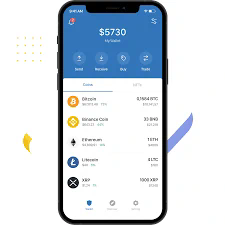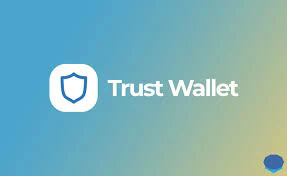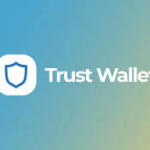# Can Trust Wallet Be Trusted? A Comprehensive Analysis
Trust Wallet has emerged as a popular mobile wallet for cryptocurrency enthusiasts, but the question remains: can it be trusted? In this article, we will delve deep into the features, security protocols, advantages, drawbacks, and the overall reputation of Trust Wallet in the cryptocurrency ecosystem.
## Introduction to Trust Wallet
Trust Wallet was launched in 2017 and quickly gained traction in the cryptocurrency community. Acquired by Binance in 2018, it has positioned itself as a leading decentralized wallet, allowing users to manage their crypto assets securely. With support for a wide array of cryptocurrencies and decentralized applications (dApps), Trust Wallet aims to provide a user-friendly experience in a space that is often regarded as complex.
### Key Features of Trust Wallet
Trust Wallet offers a plethora of features that cater to both new and experienced cryptocurrency users. Notable features include:
1. **Multi-Currency Support**: Trust Wallet supports thousands of cryptocurrencies, including Ethereum, Bitcoin, Binance Coin, and ERC-20 tokens. This flexibility allows users to manage diverse portfolios in one place.
2. **Decentralized Exchange (DEX)**: The built-in DEX functionality allows users to trade directly from their wallet without the need for a centralized exchange, promoting user control over funds.
3. **dApp Browser**: Users can access various decentralized applications directly through Trust Wallet, enabling functionalities like trading, staking, and gaming within the decentralized ecosystem.
4. **Staking**: Trust Wallet allows users to stake certain cryptocurrencies, offering a way to earn passive income by holding specific coins.
5. **User-Friendly Interface**: Designed with simplicity in mind, Trust Wallet offers an intuitive interface that makes it easy for users to manage their assets and navigate the blockchain environment.
## Security Features of Trust Wallet
When assessing the trustworthiness of any cryptocurrency wallet, security is paramount. Trust Wallet has implemented various security features to protect user funds:
### Private and Public Key Architecture
Trust Wallet operates on a decentralized architecture, meaning users retain control of their private keys. Private keys are stored locally on users’ devices and are not shared with Trust Wallet, reducing the risk of centralized attacks.
### Biometric Authentication
To enhance security, Trust Wallet supports biometric authentication for mobile devices, offering an additional layer of protection to prevent unauthorized access to the wallet.
### Backup and Recovery
Users are provided with a 12-word recovery phrase upon wallet creation. This phrase is essential for restoring access to funds in case of device loss or failure. Users are advised to store this phrase securely offline.
### Open-Source Code
Trust Wallet’s open-source nature allows developers and security experts to examine the code for vulnerabilities. This transparency builds confidence in the wallet’s security, as the community can independently verify its integrity.

### Regular Updates and Bug Bounty Programs
To remain secure against potential vulnerabilities, Trust Wallet releases regular updates. Additionally, they conduct bug bounty programs to encourage ethical hackers to identify and report security issues.
## Advantages of Trust Wallet
Understanding Trust Wallet’s advantages can help users make informed decisions:
### User Control
Trust Wallet offers complete control over private keys and funds, in stark contrast to custodial wallets that hold users’ assets. This feature is crucial in the cryptocurrency space, where self-custody is vital for maintaining asset security.
### Versatility
With support for various cryptocurrencies and built-in functionalities such as DEX trading and staking, Trust Wallet caters to diverse user needs.
### No KYC Requirements
Trust Wallet does not require users to undergo Know Your Customer (KYC) verification, enabling users to maintain privacy and anonymity while holding and trading cryptocurrencies.
### Integration with Binance Smart Chain
Being affiliated with Binance, Trust Wallet is well-integrated with the Binance Smart Chain, giving users access to a growing range of DeFi applications and tokens.
## Drawbacks of Trust Wallet
While Trust Wallet offers numerous benefits, it is not without drawbacks:
### Reliance on Mobile Security
Trust Wallet is a mobile application, which means its security relies heavily on the user’s mobile device. If a user’s phone is compromised, so are their assets.
### Limited Customer Support

As a decentralized wallet, Trust Wallet provides limited customer support compared to centralized exchanges. Users encountering issues may find it challenging to receive prompt assistance.
### Learning Curve for Beginners
While the interface is user-friendly, new users may still face challenges in understanding decentralized finance (DeFi) products and the intricacies of wallet management.
## Trust Wallet’s Reputation
Assessing Trust Wallet’s reputation involves looking at user reviews, community feedback, and its overall standing in the cryptocurrency ecosystem.
### User Feedback
User feedback on platforms like Reddit and cryptocurrency forums is generally positive. Many users appreciate Trust Wallet’s simplicity and security features. However, there are occasional complaints regarding customer support and the challenges of navigating the decentralized aspects of the wallet.
### Community Engagement
As part of the Binance ecosystem, Trust Wallet benefits from a vibrant community. The wallet regularly engages with users through social media, providing updates, technical support, and engaging in community discussions.
### Awards and Recognition
Trust Wallet has received recognition within the industry for its security features and user-friendliness. Its acquisition by Binance further legitimizes its standing, as Binance is a well-known and reputable institution in the cryptocurrency space.
## Alternative Wallets for Comparison
To provide a well-rounded analysis, it’s essential to compare Trust Wallet with other wallets in the market:
### MetaMask
MetaMask is another popular wallet primarily used for Ethereum and ERC-20 tokens. While it offers a similar interface and security features, its web-based nature and dependence on browser security can be risks compared to Trust Wallet’s mobile application.
### Ledger and Trezor (Hardware Wallets)
For users prioritizing maximum security, hardware wallets like Ledger and Trezor offer unparalleled protection against online threats. However, these wallets provide less flexibility than Trust Wallet in terms of accessing dApps and performing trades directly.
### Coinbase Wallet
Coinbase Wallet is a user-friendly option integrated with the Coinbase exchange. Despite being somewhat custodial, it still allows users to maintain control over their private keys, offering a blend of security and convenience.
## Conclusion: Is Trust Wallet Trustworthy?
In conclusion, Trust Wallet showcases several compelling features that affirm its status as a reliable cryptocurrency wallet. Its commitment to security, transparency, and user control positions it as one of the preferable options for managing cryptocurrency holdings.
However, potential users should remain vigilant, understanding that no system is entirely immune to risk. Emphasizing best security practices, such as safeguarding recovery phrases and ensuring mobile device security, is essential for maximizing the benefits of Trust Wallet.
Ultimately, Trust Wallet can be trusted as a legitimate and competent tool for cryptocurrency management, provided users take the necessary precautions to protect their assets. As with any financial or investment decision, thorough research and understanding should guide users to make informed choices in the ever-evolving digital currency landscape.


